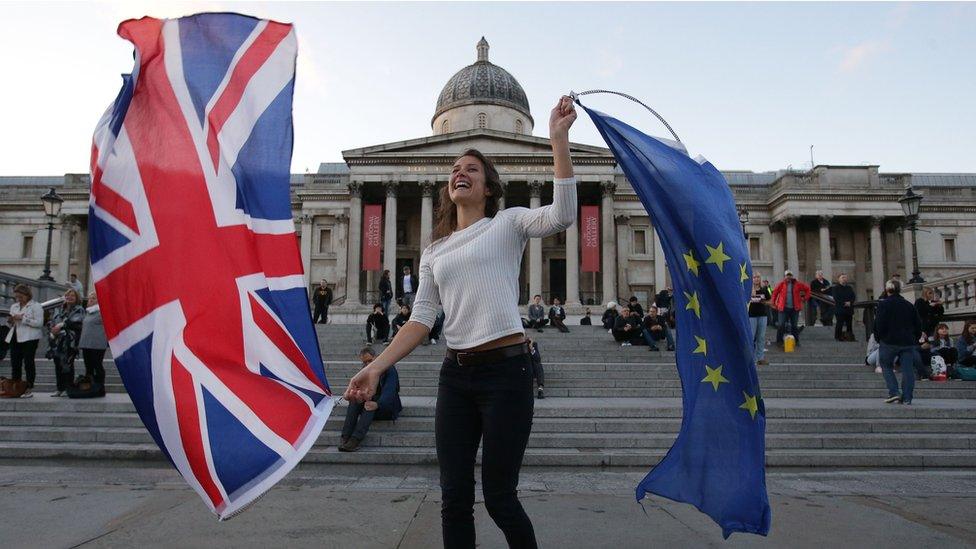Brexit: 31 politicians - mostly Labour - call for vote
- Published
- comments
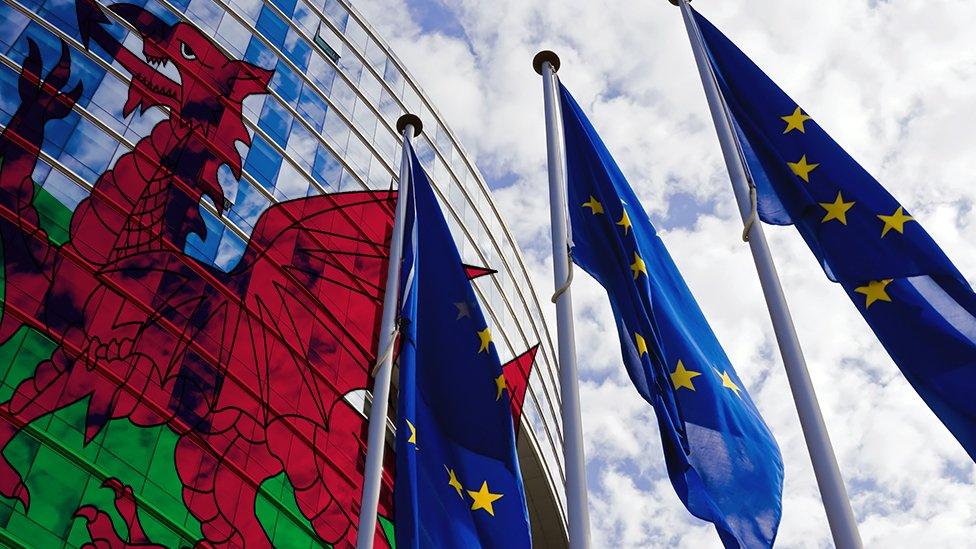
The final Brexit deal would be "too big" to be left to a vote, the letter says
More than 30 Welsh politicians are calling for a second public vote on the final Brexit deal.
A group of mainly Labour MPs, AMs and council leaders says the final deal will be "too big" to be left to a vote in the UK Parliament.
The UK government is refusing to hold a second referendum.
Labour MP Stephen Kinnock did not back the letter, saying that arguing to reverse Brexit would forfeit his right to have a voice in shaping it.
The letter puts further pressure on Labour's UK leadership to shift Brexit policy.
Westminster officials and ministers are currently negotiating with their counterparts in Brussels, with the UK set to leave the EU on 29 March, 2019.
In line with the formal two-year timetable for the Brexit talks, the UK and the EU are planning on reaching a deal in the autumn, which will then be voted on by MPs in parliament.
An open letter, co-ordinated by anti-Brexit campaign group Wales For Europe and signed by 31 senior Welsh politicians, urges "everyone in Wales of goodwill, from all parties and none, to stand with us in calling on our MPs to pledge their support for a people's vote on the final Brexit deal."
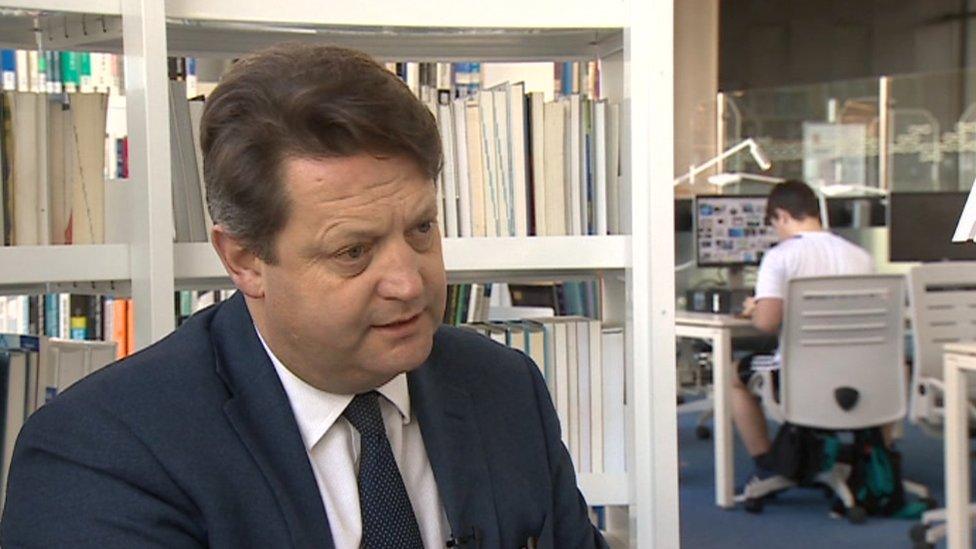
Welsh Government Local Government Secretary Alun Davies is among those who have signed the letter
The letter said: "Will it be the right deal for the people of Wales and the rest of the UK? Will it secure a good future for our young people and allow them to thrive? Will it help protect and grow the number of well-paid, highly-skilled, jobs that Wales needs?"
It is signed by eight council leaders, two of Wales' four MEPs, and 12 of the 40 Welsh MPs, including Owen Smith who was fired as shadow Northern Ireland secretary by Labour leader Jeremy Corbyn for calling for another EU referendum against party policy.
Welsh Labour MPs Anna McMorrin and Tonia Antoniazzi have signed the letter despite being shadow parliamentary private secretaries who are expected to follow the party's line.
Nine AMs have also put their name to the letter, including Plaid Cymru Leader Leanne Wood, Labour Welsh Government Local Government Secretary Alun Davies and Education Secretary Kirsty Williams, a Liberal Democrat.
Mr Smith told BBC Good Morning Wales that people now have a "deeper understanding" of what Brexit means and he feels confident they may change their votes once they see the final deal.
"We've been discussing [Brexit] for the last almost three years," he said. "I think there is now a very deep understanding in the public's mind as to what the trade-offs are, what the compromises are, and what some of the downsides are.
"Now the people are better informed, now that the complexity is more revealed, we can have a more complete view from the country and in my view, I think you might well see people change their mind."
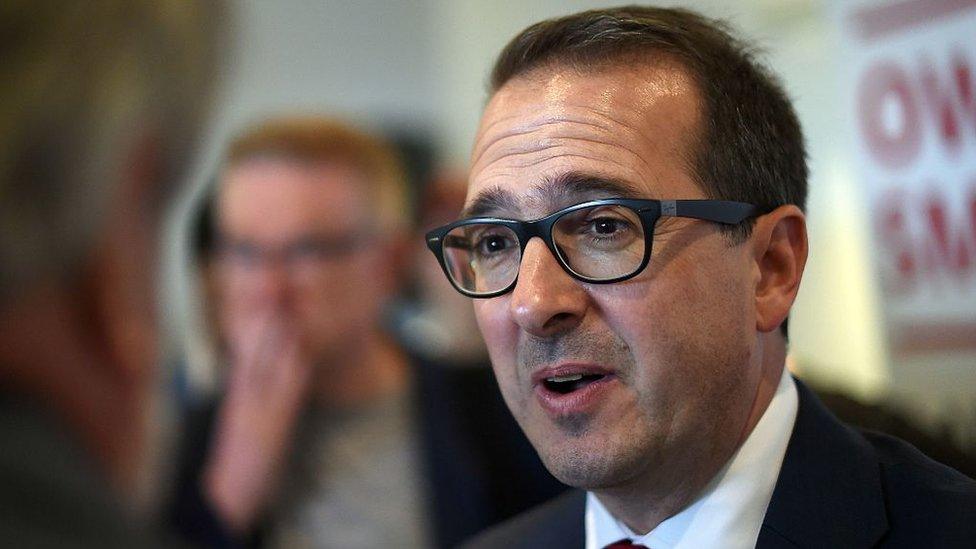
Owen Smith is one of more than 30 calling for the second vote
Mr Davies accused the UK government of being in chaos and said he had no trust in its "ability to bring back a deal that will meet the needs of the people of Wales".
"That means the people of Wales have to have the opportunity to vote on what the UK government does bring back," he said.
He said that he would hope to hold the second referendum before March next year, which is the point when Article 50 ends and the UK is set to leave the EU.
"It was poised on a knife edge, that vote, and in many parts of the country, people didn't vote for it," he added.
"It was an instruction to start the negotiations, but I don't think it was necessarily an instruction to the politicians on what the absolute outcome ought to be.
"All of those things that we were promised have turned out to be empty promises and the downsides have now been revealed.
"I think in light of that, the sensible thing is to allow the people of Wales the chance to say whether they actually want to go through with this."
First Minister Carwyn Jones has consistently said that he does not want to re-run the referendum campaign and that Wales and the UK should respect the will of the public vote.
Asked to clarify the Welsh Government's position on a second vote, a spokeswoman said: "The First Minister's priority remains securing the best deal possible for the people of Wales and the UK."
The Labour MP for Aberavon, Stephen Kinnock, was asked to sign up to the letter but refused.
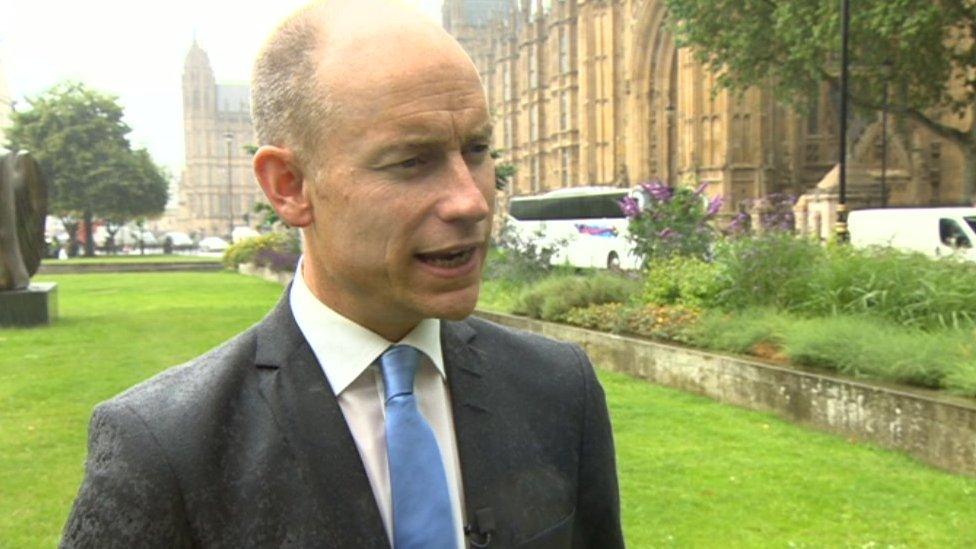
Stephen Kinnock did not sign the letter
Mr Kinnock added: "I've been campaigning for an EEA-based Brexit solidly for over 18 months. If I were to now start supporting a campaign that's designed to reverse Brexit before 29 March then the credibility of my EEA arguments would be fatally undermined.
"By arguing to reverse Brexit I would effectively be forfeiting my right to have a voice in shaping it."
Welsh Conservative leader Andrew RT Davies said the first minister had lost all authority after announcing plans to stand down later this year, and ministers were now "freewheeling and publicly advocating positions which are against official Welsh Government policy".
"Jeremy Corbyn sacked Owen Smith for far less - and there are now serious questions over Carwyn Jones's ability to lead his party and his government as we enter a key period in the Brexit negotiations," Mr Davies added.
In a recent lecture for the campaign group 'Wales For Europe', external, the Welsh Government's lead on Brexit Mark Drakeford said a referendum "is only one way in which the acceptability or otherwise of such a final deal could be tested".
But he added that "now is not the moment to be over-definitive about the nature of the question that we would pose at such a point nor the way in which that question would be resolved".
- Published14 January 2018
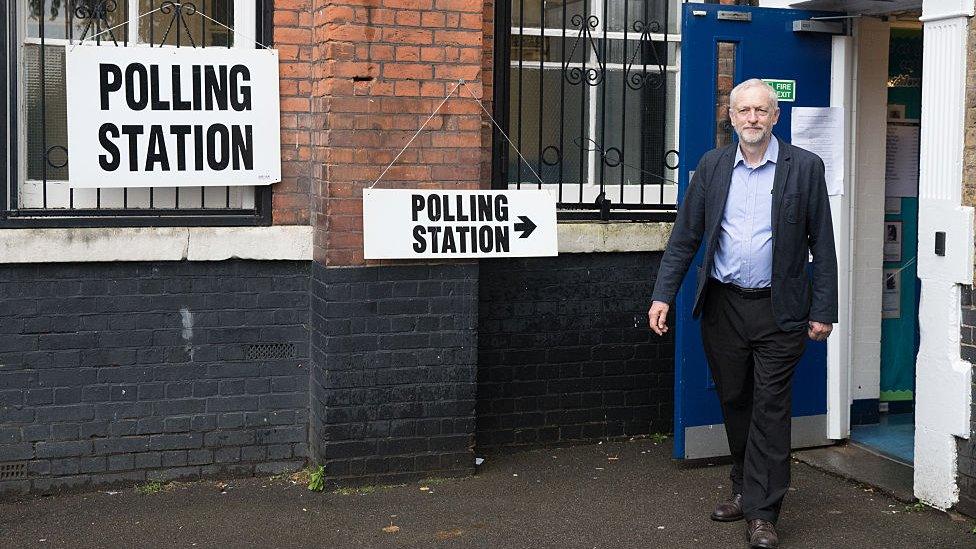
- Published12 March 2018
